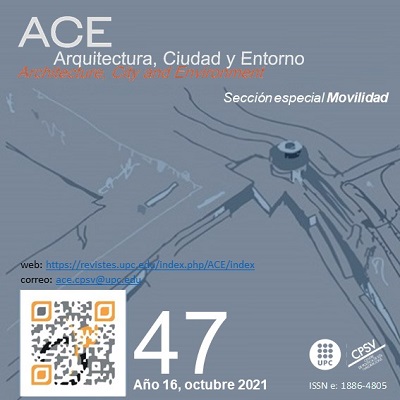Energy Analysis with Optimal Cost to Achieve an Efficient Housing Model for the Argentine Credit Program in Cold Weather
DOI:
https://doi.org/10.5821/ace.16.47.9814Keywords:
Argentina, energy optimization, social housing, demand minimizationAbstract
The housing deficit in Argentina has driven the construction of low-cost single-family homes with an inefficient design against the climatic conditions and user comfort. The work aims to improve the environmental behavior of these homes, the optimal cost and the quality of life of people. It is studied how to optimize passive environmental conditioning strategies in a housing model of the Argentine Credit Program (PROCREAR), through a constructive design that reduces the annual energy demands of the house. A methodology has been developed to study the necessary architectural adaptation of the model to new passive energy design strategies in a cold climate. Proposals have been made to reduce the thermal transmittance in the envelope and the relationship between the surface of the openings and solar protections based on the orientation, taking as a reference the minimum energy efficiency values established by the Argentine standard. Subsequently, the advantages of introducing alternative materials to the construction systems of the original model are analyzed, and as a whole they optimize energy performance and reduce CO2 emissions inside the house. The analysis shows that, in the studied climate, the incorporation of passive strategies in the design of construction systems makes it possible to achieve optimal energy saving conditions and to avoid cost overruns. These benefits are achieved by improving the thermal transmittance behavior of the façade, thus obtaining a 50% reduction in heating demand, and by considering the incorporation of solar protections, the cooling demand is reduced by 40%.
Downloads
Published
Issue
Section
License
| INTELECTUAL PROTECTION CRITERIA |
At this moment, it is count with the "Oficina Española de Patentes y Marcas", while global protection it is being processed by the World Intelectual Property Organization (OMPI/WIPO). Nevertheless the International Standard Serial Number Office (ISSN) has given the following numbers ISSN: 1886-4805 (electronic version) and 1887-7052 (paper version). All articles will be peer reviewed, using double blind reviewing. |
| COPYRIGHT |
The article contents and their comments are authors exclusive liability, and do not reflect necessarily the journal editor commitee's opinion. All ACE published works are subject to the following licence CC BY-NC-ND 3.0 ES http://creativecommons.org/licenses/by-nc-nd/3.0/es/ It implies that authors do not hold nor retain the copyright without restrictions but only those included in the licence. |


































